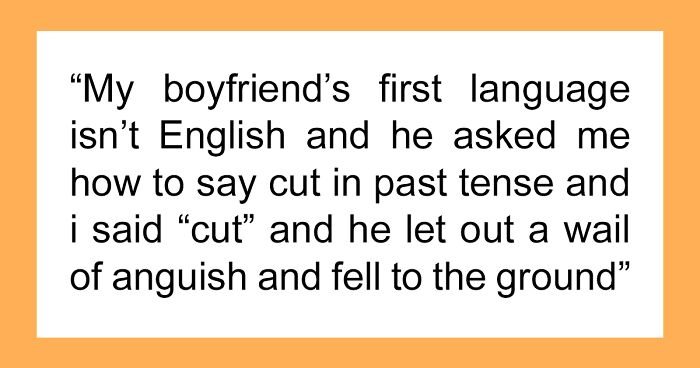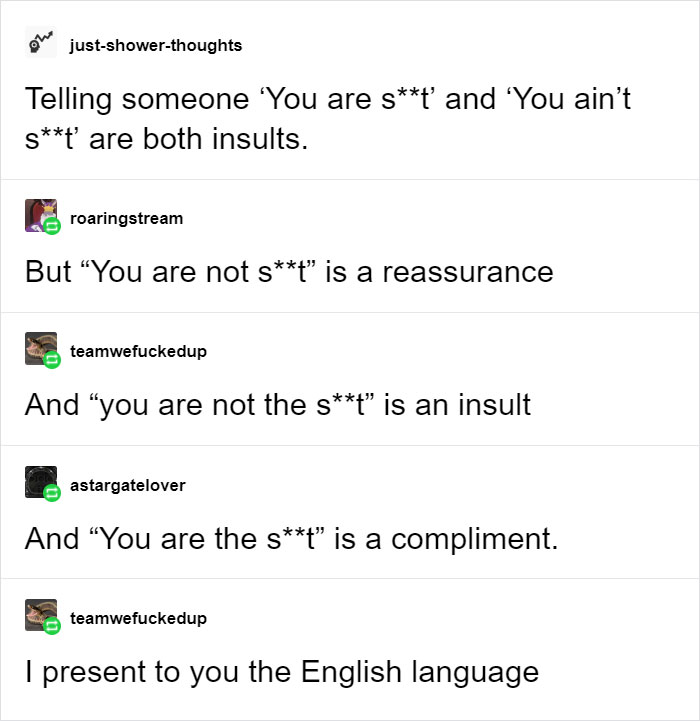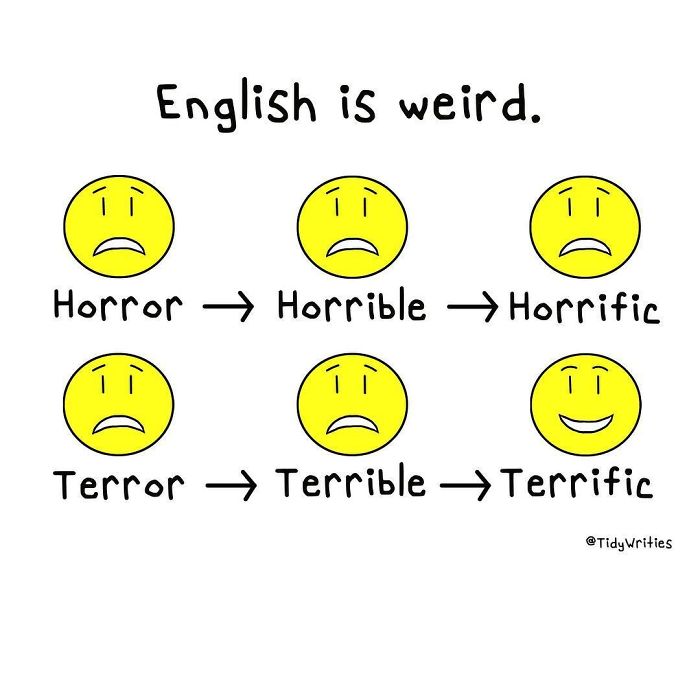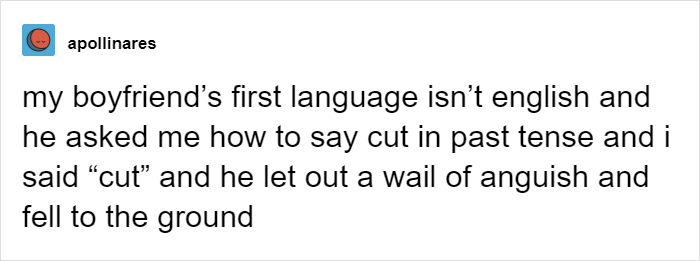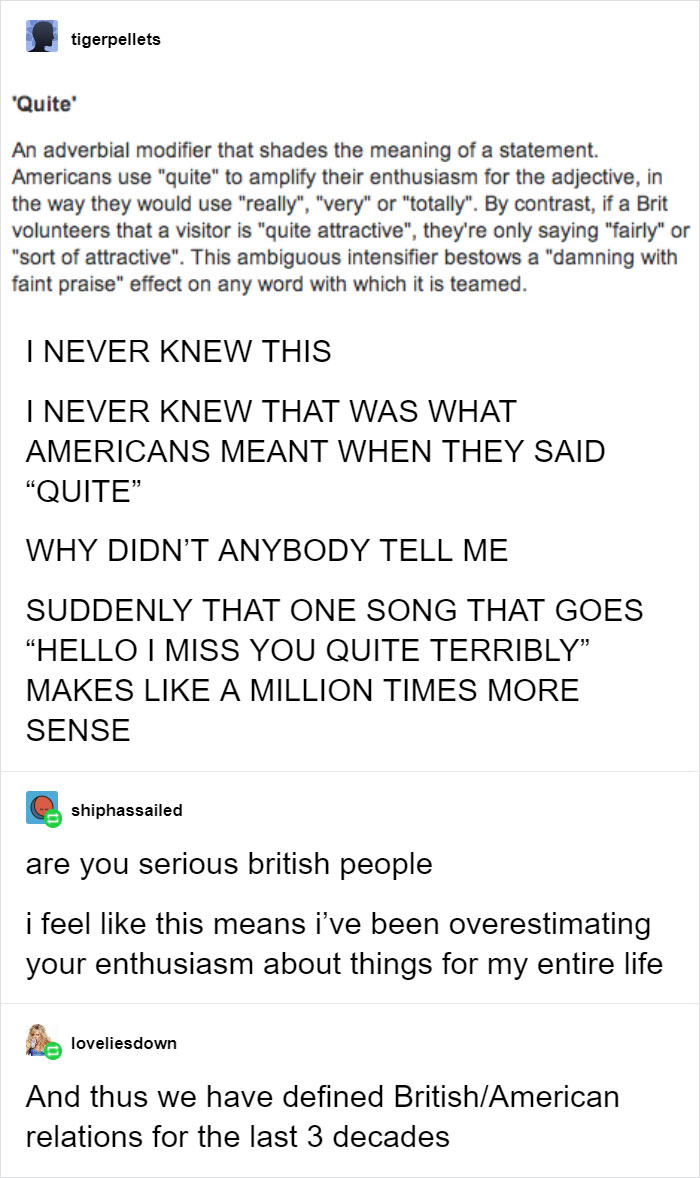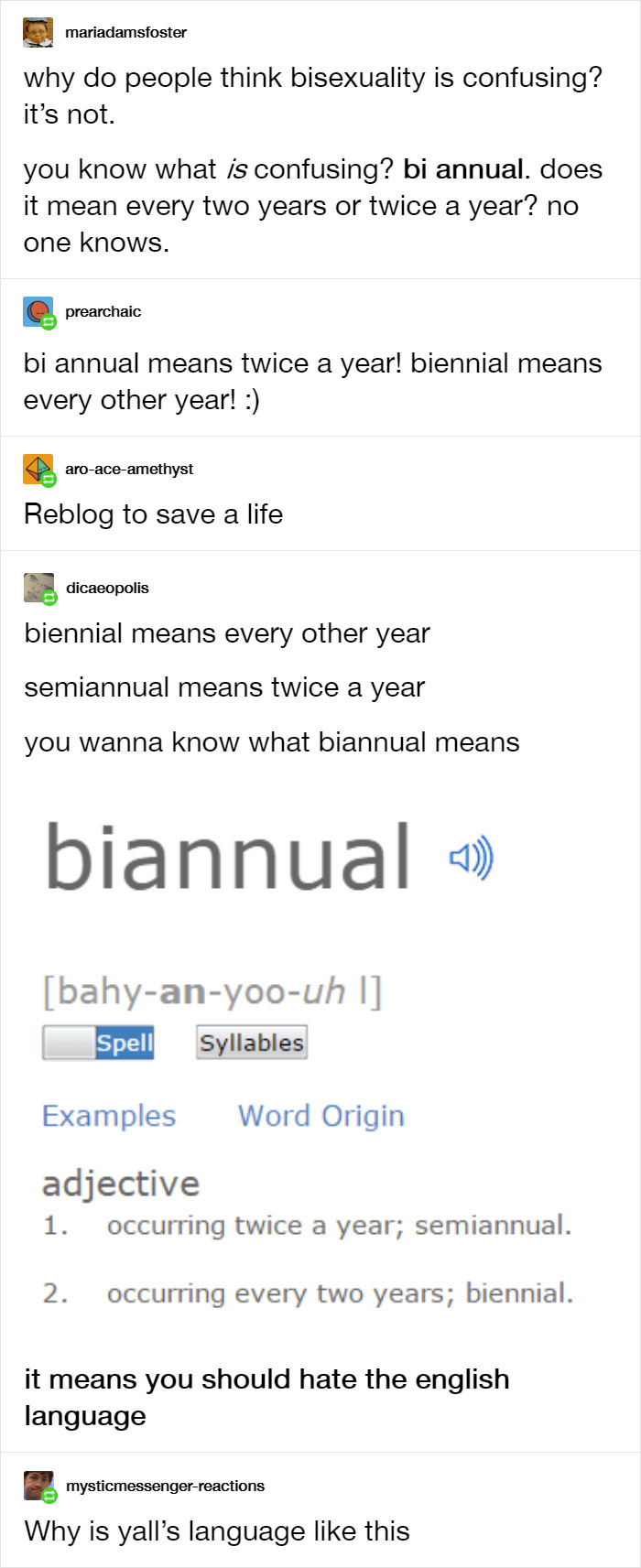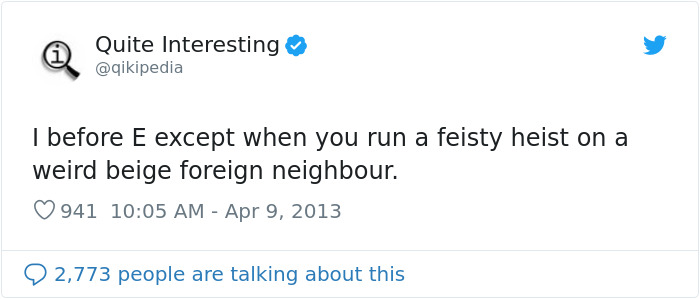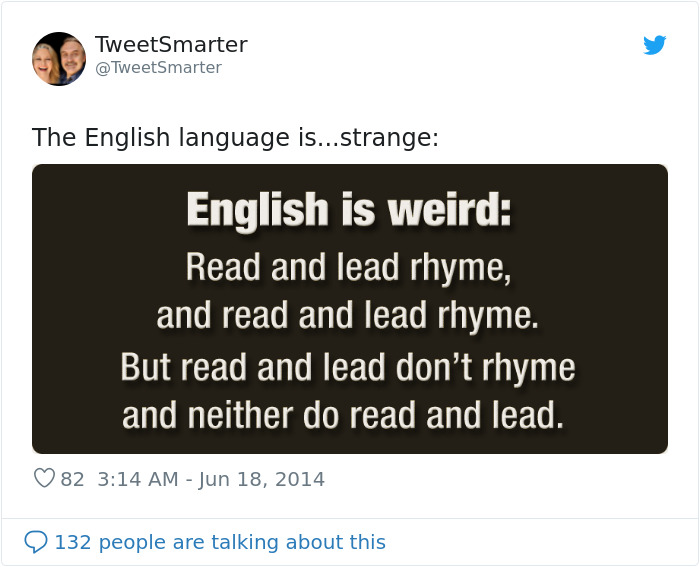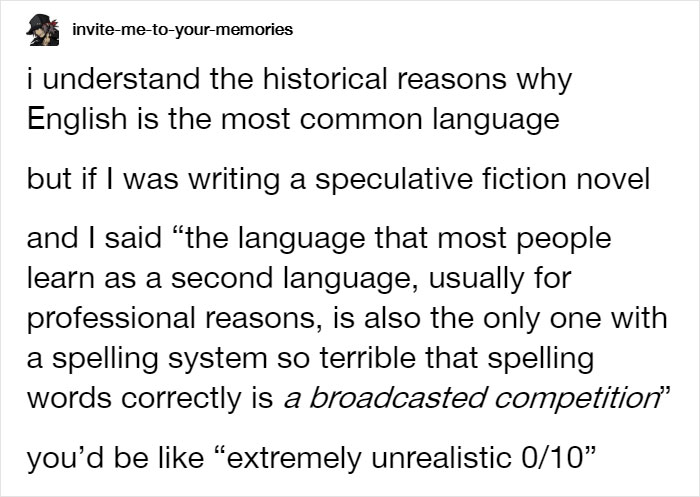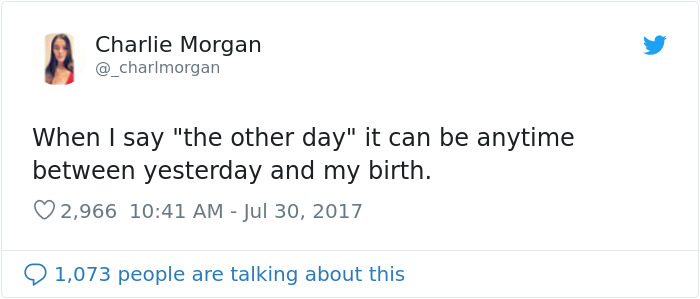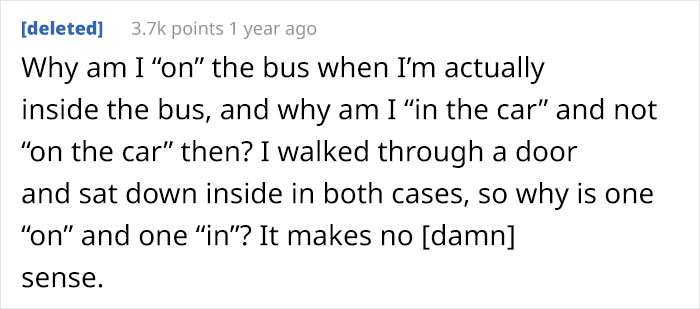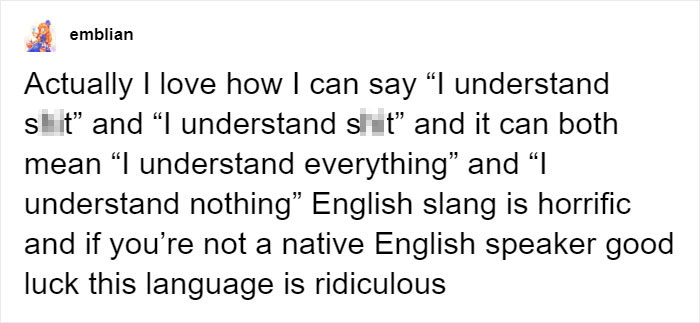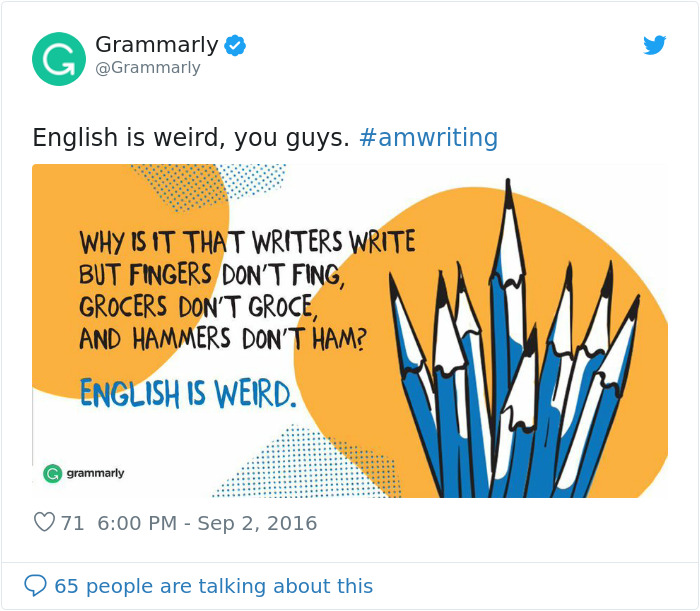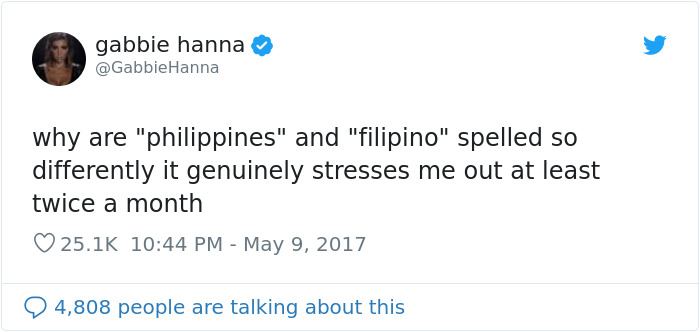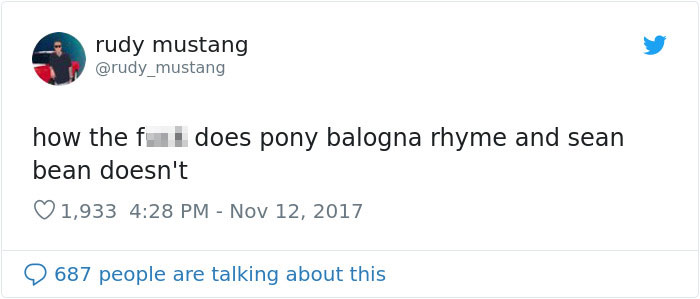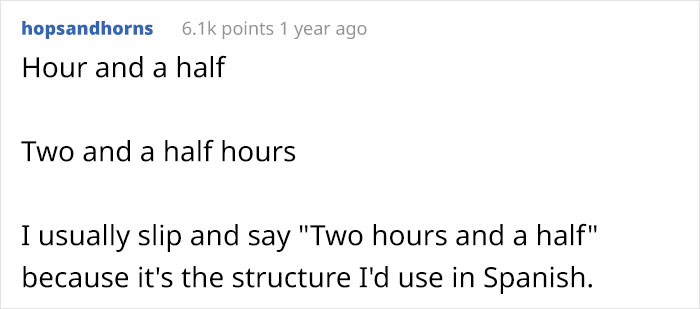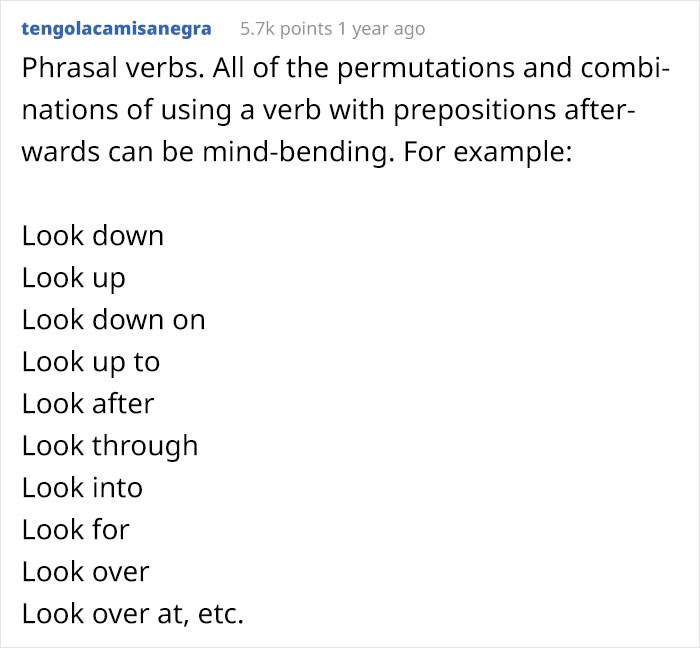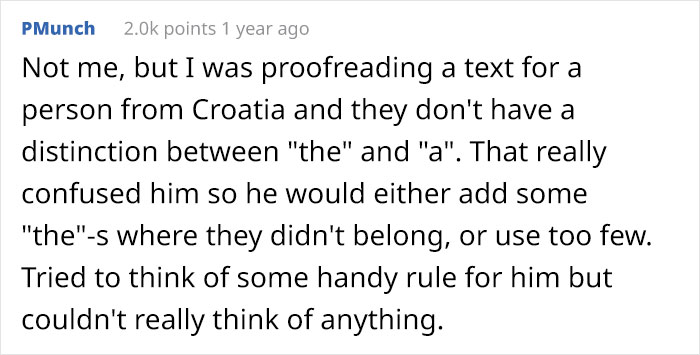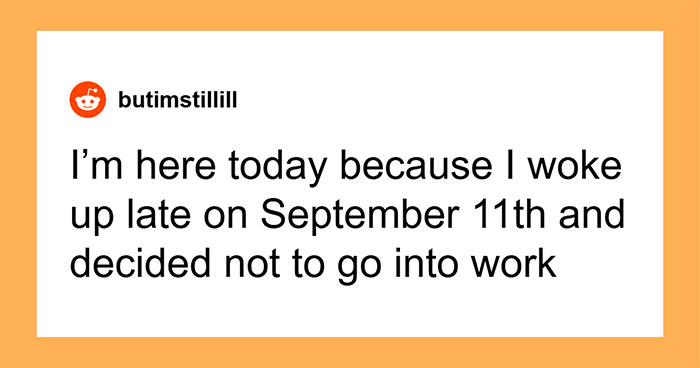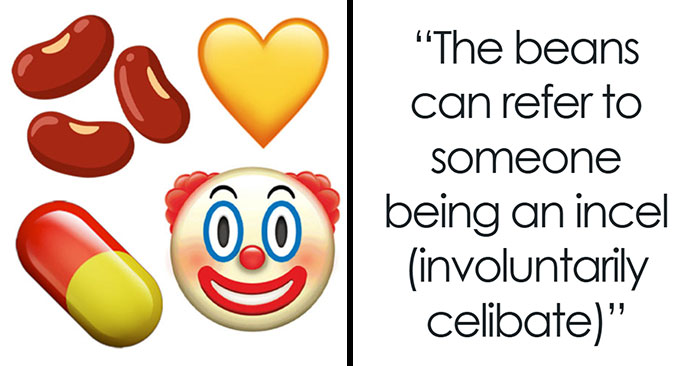Blessed be those who didn't have to go through the trouble of learning the English language. Some might say that learning Japanese or Icelandic might be the most difficult task out there, but even the most complicated aspects of those languages have some kind of logic behind them. English grammar and the language itself, on the other hand, has some truly nonsensical characteristics to it and a plethora of arbitrary rules.
Those with English as their native language never have to consciously work through the kinks of spelling out Wednesday or why writers write, but fingers don't fing and grocers don't groce. Learning English as a secondary language is a real minefield once you figure out the basic grammar rules and step into more specific areas. And these people decided to point some of the most confusing things out there to prove their point. English is a weird language and at times makes no sense whatsoever, especially for a language that is so widespread.
This post may include affiliate links.
...You tiptoe on the tips of your toes... And I'd be willing to bet someone out there can use their fingers to walk.
To be fair, many linguists would easily find a logical answer to most of the problems presented in these messages, as English language has a lot of nuances (like words being borrowed from Latin and Greek, or the fact that some words had their origins lost or they ceased to be used in spoken language). However, that doesn't mean that they still don't fail to confuse people trying to learn the language, as even the most sound explanation might seem nonsensical when the original problem could be solved by, well... changing the language? Ah, let's leave this for the linguists to figure out and non-native speakers to be confused about, right?
It took me a while to remember which one is positive and which one is negative between horriffic and terrfic...
Brits also use 'Quite' in a sarcastic manner if agreeing with someone (who they don't agree with).
one is used by the people of sarcasm and one is used by regular people
There's a broadcasted spelling competition for the Dutch language as well ^^ Dutch is easier though, makes more sense :)
Fridge is a slang shortening of one of the original refrigerators - Fridgidaire...
Same way that the sentence "I never said she stole all my money" takes on a completely different meaning depending upon which particular word you emphasise…
I had a non English guest who wanted to see a dentist but all the ones he found were at Dental Practices - he didn't want to be practiced on, he wanted one who knew what they were doing
Why are we like this... I'm English and I still don't understand why we are like this ._.
From what I understand, it has to do with all the conquering that happened way back in the day. The people who eventually became English were very good about incorporating the conquerors' language in with their own, which is why there are so many words (double that of German) and so many nuances. **steps down from podium**
Load More Replies...The Romans, the Vikings, and the Normands. And then the English became conquerors themselves and brought back words such as Avatar, Bandanna, Cot, Dungaree, Guru, Jungle, Karma, Loot, Mogul, Nirvana, Pyjamas, Shampoo, Thug, Veranda, and Yoga. From: https://en.wikipedia.org/wiki/List_of_English_words_of_Hindi_or_Urdu_origin
Speaking for myself, I love the chaos of my language. But then I tend to gravitate toward chaos in all things.
I've stopped trying to curse in English because once I said "how should we f**k this" instead of "how should we f*****g do this" and I was laughed at, thinking I did it in jest. I didn't. I really thought that was how you curse in English.
No, non-native speakers should cuss frequently:-) It’s funny and it’s interesting because errors lay bare the underlying structure of the language, stuff one doesn’t normally notice if one’s a native speaker
Load More Replies...As a worker from a central European country once said to us " You think I know f**k nothing, but I tell you I know f**k all".
English is not a language, it’s a perpetrator that takes other languages down dark allies, beats them to a pulp and robs them. 😂
i live in switzerland and it's quite frustrating that for words like "du", "dir", "dich", "Ihr", "Sie", "Ihnen", "euch", which are pronouns, in english you simply translate ALL OF THEM into the word "you"
What gets me is that "I'm gonna see if I can't catch that ball" and "I'm gonna see if I can catch that ball" mean the same thing.
The big problem is that English is a mishmash of other different languages that all have their own rules! You have Greek, Latin, French, Norse & Spanish roots, just to name a few, and they all have their own grammar, etc, as displayed above.
The worst aspect of the English language for writers is the lack of a gender neutral first person singular. Ex: A good employee knows that they have to be on time. NO! employee is singular they is plural Ex. A good employee knows he has to be on time. NO! This assumes the employee is male (unfounded sexism). Ex. A good employee knows that s/he has to bee on time. NO? Acceptable in some circles but still not perfect. Pity the poor writer who has to use English.
Singular 'they' does have a long history and should simply be accepted. There's also 'it' which is the true neutral first person singular. Some people prefer it. I don't, but it is an option.
It started out as a perfectly good Tuesday, then you people had to grammar all over it
The thing about English is it's a mess but at the same time it's kind of super flexible. So I can generally understand what people mean to say when they make technical errors. That's why people get called out with "You know what I meant." when they correct people. It takes a lot of errors to make a sentence that's completely incomprehensible and it's easy for two people to say the same thing and mean completely opposite things. That's just English.
Being an Englishman I really enjoyed this post, learned something too.
I'll just leave this here: https://www.englishclub.com/esl-articles/199909.htm
I recommend attempting The Chaos by Gerard Nolst Trenite, it really gets you thinking about the English language.
Like everything else that was stolen or taken, so was the language. So I wonder, what was the language like before the conquistadors conquered?
I live in Israel and one of my neighbors has a good point he’s trying to learn English and noticed that in all Hebrew English or English Hebrew dictionaries there are pronunciation guides for Hebrew even though Hebrew has almost no exceptions to the pronunciation rules but none for the English
I have a question for the frenchies out there. Why do we translate some places like New Mexico, New Orleans, New England but not New York or New Hampshire? I want to know!!
Some languages borrow words from other languages. English hits other languages over the head in a dark alley and steals all their vocabulary. No wonder English has words spelled according to Greek, Latin, German, French, Spanish, Arabic, Hebrew, and Hindi rules - to name jut a few. "Stephan (greek) and (German) Peter (Latin) saw (german) Satan (Hebrew) flaunting (french) his pyjamas (Himdu) like a maniac (greek) samurai (japanese) jihadi (arabic)." Suspicous, in more ways than one.
Why can I wear a windbreaker -- but I can't say that it breaks wind? (Also, I'm surprised that the contributor found *ONLY* 40 examples...)
There was a photo on Facebook a while ago of a ship shipping shipping ship shipping shipping ships! Say that a few times while drunk 😀
Phonetics is spelt with a "ph." The English language makes no sense!
Mine is the fact that we drive on a parkway and park on a driveway. Also the fact that what we call football uses hands more than feet.
When I was doing my PGDE in post-compulsory adult literacy, we would often share stories about our learners. A classmate of mine was teaching at an ESOL, (English for Speakers of Other Languages), centre and one of her learners approached her and asked why "quite a bit" and "quite a lot" meant the same thing. She explained that the English language was ridiculous.
So many of these people are unnecessarily upset over minor complications and contradictions. How will they face the vagaries of real life?
English is definitely not a hard language to learn in comparison to other languages...but damn does it have quirks.
English is an easy language to learn for rudimentary understanding but to speak British English really well is very difficult as there are too many words that we know mean almost the same thing.....but not quite.
All of this is because the English language is comprised of multiple other languages and not just one.
Just to mess them up more introduce these English words borrowed from the French language: garçon, café, façade, coup d'état, coup de théâtre, and coup de grâce. The list does go on.
How do I add a post to the thread ?. I have TEN ways to say the letter O. ___________ one ( wu ) . won. ( u). Woman women ( woo / wi ) _______ Go to top. Form. cow. word.
The people that figured these out are are very smart. They have dissected lots of words.
#34 - English might not have a plural form of you, but Aussie/Kiwi do (yous) and so do southern Americans (y'all)!
Australians try very hard not to use yous, it is a horrible sounding word
Load More Replies...In Lincolnshire (UK) Old Boy can mean both a young lad or a very old man :) I love the English language, it keeps everyone on their toes!
OUR QUEER LANGUAGE I THINK YOU ALREADY KNOW OF TOUGH AND BOUGH AND COUGH AND DOUGH OTHERS MAY STUMBLE BUT NOT YOU WITH THOROUGH AND THROUGH WELL DONE ! AND NOW YOU WISH, PERHAPS TO LEARN OF LESS FAMILIAR TRAPS ? BEWARE OF HEARD, A DREADFUL WORD THAT LOOKS LIKE BEARD AND SOUNDS LIKE BIRD. AND DEAD, ITS SAID LIKE BED, NOT BEAD – FOR GOODNESS SAKE DON’T CALL IT DEED ! WATCH OUT FOR MEAT AND GREAT AND THREAT – THEY RHYME WITH SUITE AND STRAIGHT AND DEBT A MOTH IS NOT A MOTH IN MOTHER NOR BOTH IN BOTHER OR IN BROTHER AND HERE IS NOT A MATCH FOR THERE NOR DEAR AND FEAR FOR BEAR AND PEAR AND THERE’S DOSE AND ROSE AND LOSE – JUST LOOK THEM UP – AND GOOSE AND CHOOSE. AND CORK AND WORK AND CARD AND WARD AND FONT AND FRONT AND WORD AND SWORD AND DO AND GO AND THWART AND CART – COME, COME I’VE HARDLY MADE A START ! A DREADFUL LANGUAGE ? MAN ALIVE I’D MASTERED IT WHEN I WAS FIVE !
I had a non English guest who wanted to see a dentist but all the ones he found were at Dental Practices - he didn't want to be practiced on, he wanted one who knew what they were doing
Why are we like this... I'm English and I still don't understand why we are like this ._.
From what I understand, it has to do with all the conquering that happened way back in the day. The people who eventually became English were very good about incorporating the conquerors' language in with their own, which is why there are so many words (double that of German) and so many nuances. **steps down from podium**
Load More Replies...The Romans, the Vikings, and the Normands. And then the English became conquerors themselves and brought back words such as Avatar, Bandanna, Cot, Dungaree, Guru, Jungle, Karma, Loot, Mogul, Nirvana, Pyjamas, Shampoo, Thug, Veranda, and Yoga. From: https://en.wikipedia.org/wiki/List_of_English_words_of_Hindi_or_Urdu_origin
Speaking for myself, I love the chaos of my language. But then I tend to gravitate toward chaos in all things.
I've stopped trying to curse in English because once I said "how should we f**k this" instead of "how should we f*****g do this" and I was laughed at, thinking I did it in jest. I didn't. I really thought that was how you curse in English.
No, non-native speakers should cuss frequently:-) It’s funny and it’s interesting because errors lay bare the underlying structure of the language, stuff one doesn’t normally notice if one’s a native speaker
Load More Replies...As a worker from a central European country once said to us " You think I know f**k nothing, but I tell you I know f**k all".
English is not a language, it’s a perpetrator that takes other languages down dark allies, beats them to a pulp and robs them. 😂
i live in switzerland and it's quite frustrating that for words like "du", "dir", "dich", "Ihr", "Sie", "Ihnen", "euch", which are pronouns, in english you simply translate ALL OF THEM into the word "you"
What gets me is that "I'm gonna see if I can't catch that ball" and "I'm gonna see if I can catch that ball" mean the same thing.
The big problem is that English is a mishmash of other different languages that all have their own rules! You have Greek, Latin, French, Norse & Spanish roots, just to name a few, and they all have their own grammar, etc, as displayed above.
The worst aspect of the English language for writers is the lack of a gender neutral first person singular. Ex: A good employee knows that they have to be on time. NO! employee is singular they is plural Ex. A good employee knows he has to be on time. NO! This assumes the employee is male (unfounded sexism). Ex. A good employee knows that s/he has to bee on time. NO? Acceptable in some circles but still not perfect. Pity the poor writer who has to use English.
Singular 'they' does have a long history and should simply be accepted. There's also 'it' which is the true neutral first person singular. Some people prefer it. I don't, but it is an option.
It started out as a perfectly good Tuesday, then you people had to grammar all over it
The thing about English is it's a mess but at the same time it's kind of super flexible. So I can generally understand what people mean to say when they make technical errors. That's why people get called out with "You know what I meant." when they correct people. It takes a lot of errors to make a sentence that's completely incomprehensible and it's easy for two people to say the same thing and mean completely opposite things. That's just English.
Being an Englishman I really enjoyed this post, learned something too.
I'll just leave this here: https://www.englishclub.com/esl-articles/199909.htm
I recommend attempting The Chaos by Gerard Nolst Trenite, it really gets you thinking about the English language.
Like everything else that was stolen or taken, so was the language. So I wonder, what was the language like before the conquistadors conquered?
I live in Israel and one of my neighbors has a good point he’s trying to learn English and noticed that in all Hebrew English or English Hebrew dictionaries there are pronunciation guides for Hebrew even though Hebrew has almost no exceptions to the pronunciation rules but none for the English
I have a question for the frenchies out there. Why do we translate some places like New Mexico, New Orleans, New England but not New York or New Hampshire? I want to know!!
Some languages borrow words from other languages. English hits other languages over the head in a dark alley and steals all their vocabulary. No wonder English has words spelled according to Greek, Latin, German, French, Spanish, Arabic, Hebrew, and Hindi rules - to name jut a few. "Stephan (greek) and (German) Peter (Latin) saw (german) Satan (Hebrew) flaunting (french) his pyjamas (Himdu) like a maniac (greek) samurai (japanese) jihadi (arabic)." Suspicous, in more ways than one.
Why can I wear a windbreaker -- but I can't say that it breaks wind? (Also, I'm surprised that the contributor found *ONLY* 40 examples...)
There was a photo on Facebook a while ago of a ship shipping shipping ship shipping shipping ships! Say that a few times while drunk 😀
Phonetics is spelt with a "ph." The English language makes no sense!
Mine is the fact that we drive on a parkway and park on a driveway. Also the fact that what we call football uses hands more than feet.
When I was doing my PGDE in post-compulsory adult literacy, we would often share stories about our learners. A classmate of mine was teaching at an ESOL, (English for Speakers of Other Languages), centre and one of her learners approached her and asked why "quite a bit" and "quite a lot" meant the same thing. She explained that the English language was ridiculous.
So many of these people are unnecessarily upset over minor complications and contradictions. How will they face the vagaries of real life?
English is definitely not a hard language to learn in comparison to other languages...but damn does it have quirks.
English is an easy language to learn for rudimentary understanding but to speak British English really well is very difficult as there are too many words that we know mean almost the same thing.....but not quite.
All of this is because the English language is comprised of multiple other languages and not just one.
Just to mess them up more introduce these English words borrowed from the French language: garçon, café, façade, coup d'état, coup de théâtre, and coup de grâce. The list does go on.
How do I add a post to the thread ?. I have TEN ways to say the letter O. ___________ one ( wu ) . won. ( u). Woman women ( woo / wi ) _______ Go to top. Form. cow. word.
The people that figured these out are are very smart. They have dissected lots of words.
#34 - English might not have a plural form of you, but Aussie/Kiwi do (yous) and so do southern Americans (y'all)!
Australians try very hard not to use yous, it is a horrible sounding word
Load More Replies...In Lincolnshire (UK) Old Boy can mean both a young lad or a very old man :) I love the English language, it keeps everyone on their toes!
OUR QUEER LANGUAGE I THINK YOU ALREADY KNOW OF TOUGH AND BOUGH AND COUGH AND DOUGH OTHERS MAY STUMBLE BUT NOT YOU WITH THOROUGH AND THROUGH WELL DONE ! AND NOW YOU WISH, PERHAPS TO LEARN OF LESS FAMILIAR TRAPS ? BEWARE OF HEARD, A DREADFUL WORD THAT LOOKS LIKE BEARD AND SOUNDS LIKE BIRD. AND DEAD, ITS SAID LIKE BED, NOT BEAD – FOR GOODNESS SAKE DON’T CALL IT DEED ! WATCH OUT FOR MEAT AND GREAT AND THREAT – THEY RHYME WITH SUITE AND STRAIGHT AND DEBT A MOTH IS NOT A MOTH IN MOTHER NOR BOTH IN BOTHER OR IN BROTHER AND HERE IS NOT A MATCH FOR THERE NOR DEAR AND FEAR FOR BEAR AND PEAR AND THERE’S DOSE AND ROSE AND LOSE – JUST LOOK THEM UP – AND GOOSE AND CHOOSE. AND CORK AND WORK AND CARD AND WARD AND FONT AND FRONT AND WORD AND SWORD AND DO AND GO AND THWART AND CART – COME, COME I’VE HARDLY MADE A START ! A DREADFUL LANGUAGE ? MAN ALIVE I’D MASTERED IT WHEN I WAS FIVE !

 Dark Mode
Dark Mode 

 No fees, cancel anytime
No fees, cancel anytime 



